10
Bee colonies at Photovoltaic Farms in Sulechow
We share with you the "electric" honey from the Photovoltaic Farms of Polenergia Group in Sulechów. It is the third year of operation of our apiary and another honey harvest. The apiary consists of ten hives. Each bee colony consists of as many as 50,000 bees, which collect nectar and pollen from the flowers growing on the farms and from other honey plants in the area.
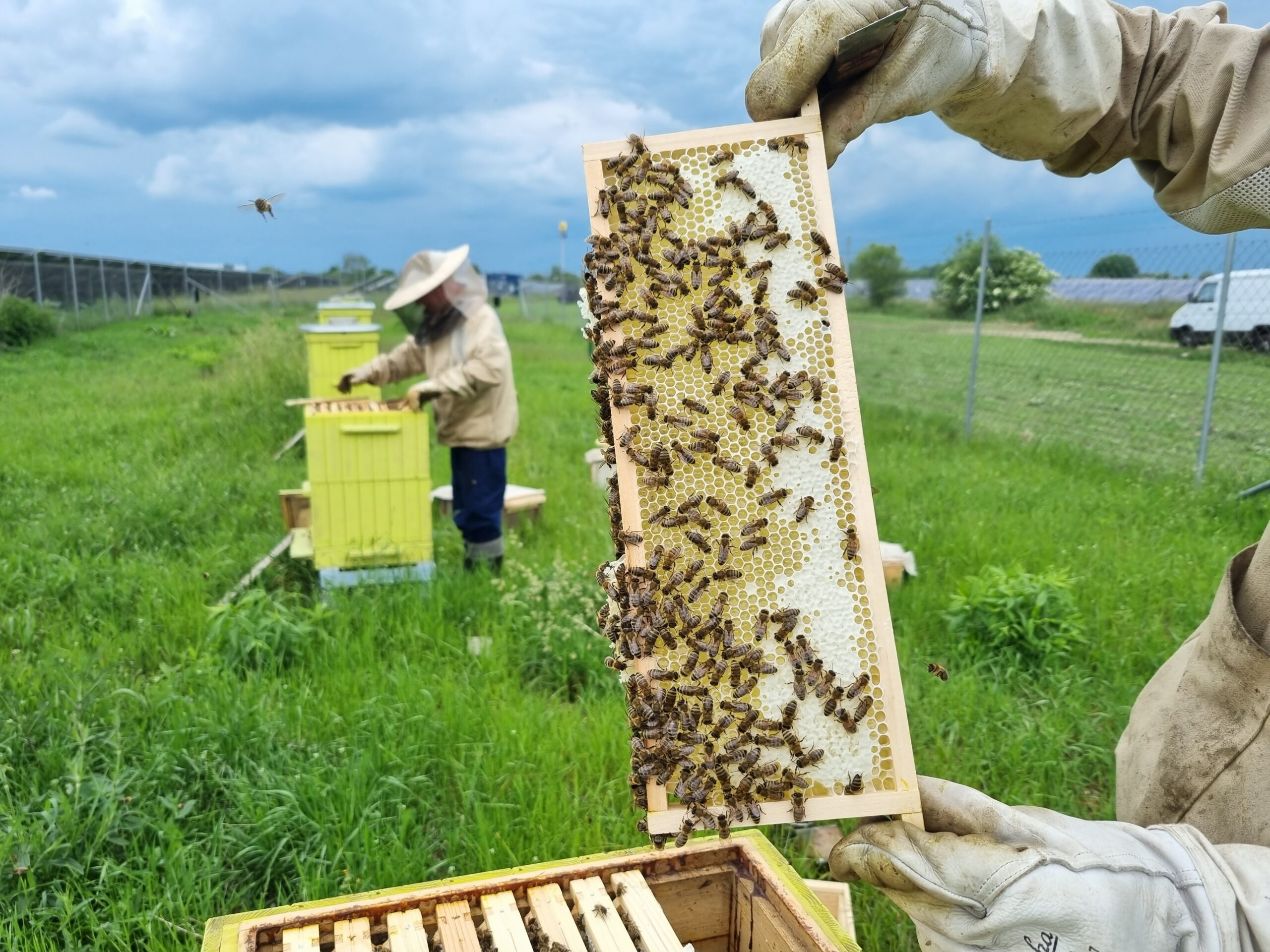
The Sulechów apiary has become a permanent part of the history of Polenergia’s solar installations. Just a few months after the launch of the first 8 MWp Sulechów I Photovoltaic Farms, our bees appeared on their premises. In just three years, the Sulechow Municipality has become a true photovoltaic valley of the Group. The area of our farms increased from 16 to 61 hectares, and the power of all installations grew to 30 MWp. The projected annual production of clean electricity from the sun will amount to about 32 GWh in Sulechów, which corresponds to the electricity needs of 16,000 households and will thus avoid the emission of as much as 27,000 tons of harmful greenhouse gases annually. The plant’s operating life is estimated at up to 30 years, while cumulative electricity production will be about 860 GWh.

10
Bee colonies at Photovoltaic Farms in Sulechow
400 kg
Annual honey production at Sulechow Photovoltaic Farms I
In 2022, we sowed an area of 50 hectares on the farms with a honey-giving mixture of flower and pasture meadows. In addition, we sowed honey-giving clover and phacelia. The diversification of land use we have introduced results in a higher species richness of the habitat. In this way, Polenergia not only generates green energy, but also contributes to the creation of a multi-hectare acreage that strengthens local biodiversity and provides a food base for wild pollinators. Our farm is also a refuge and breeding ground for many species of birds and mammals, including strictly protected species. Our meadow flowers as well as shrubs and trees provide an enormous amount of benefits for our bees.
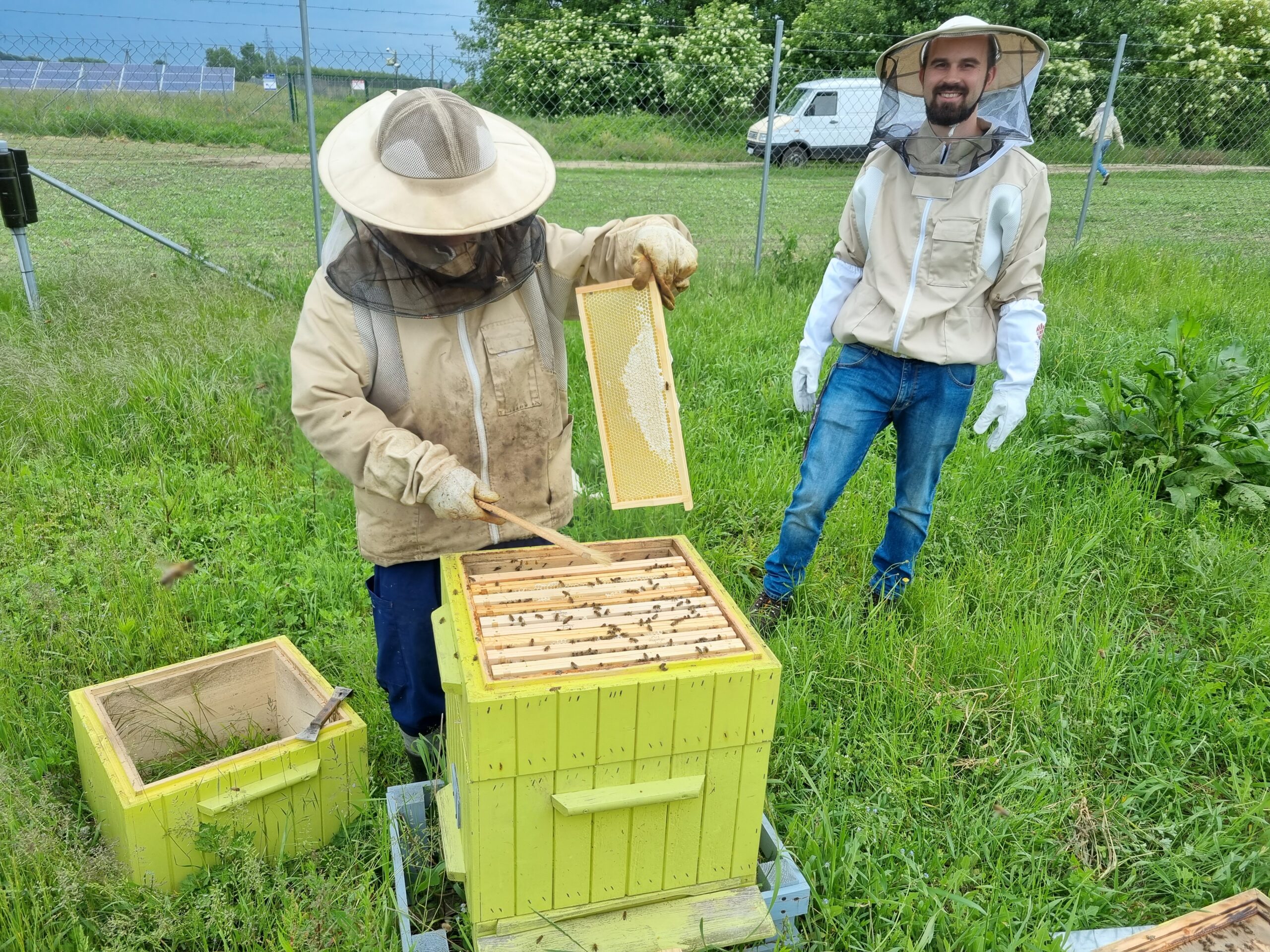
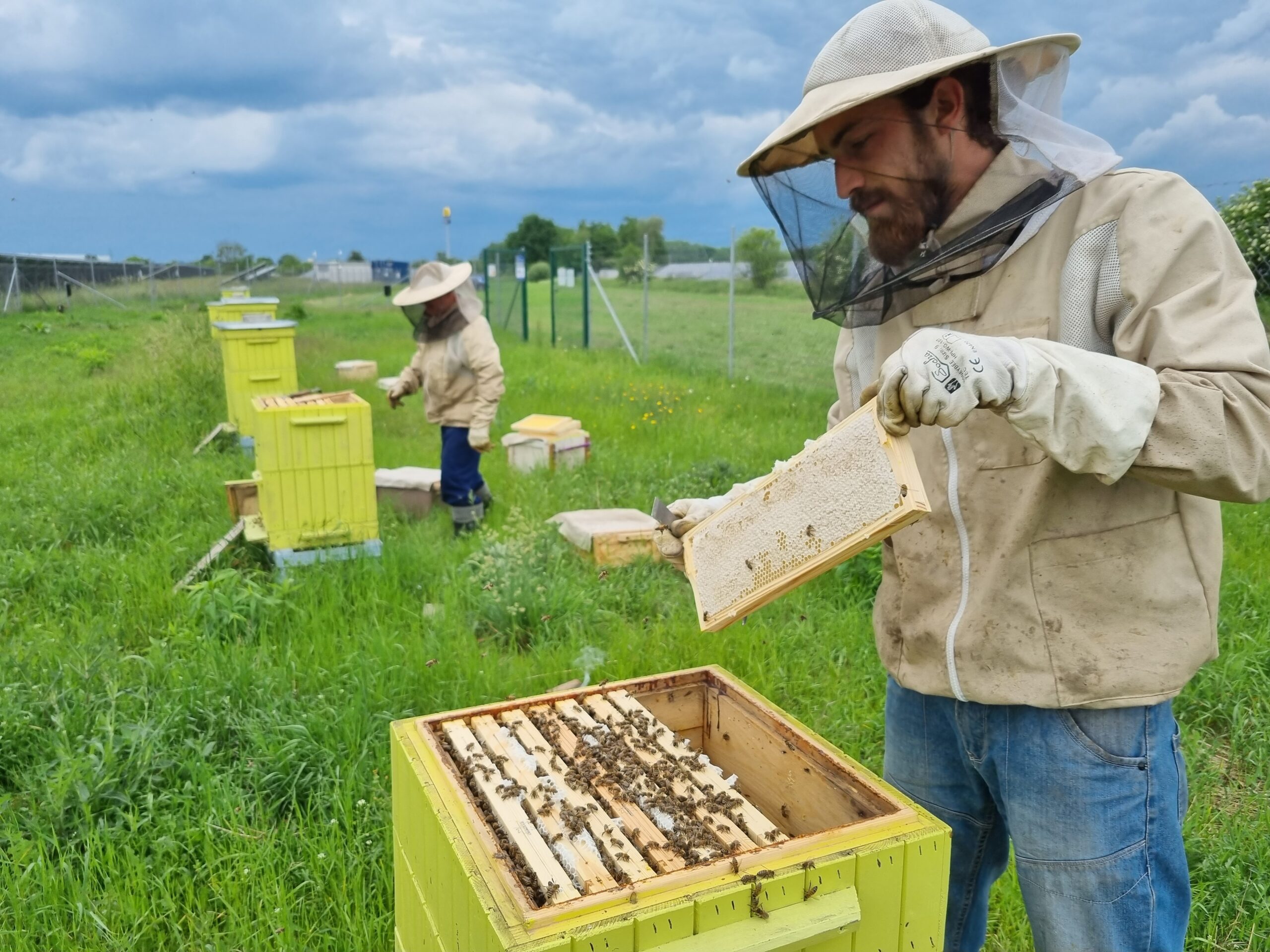
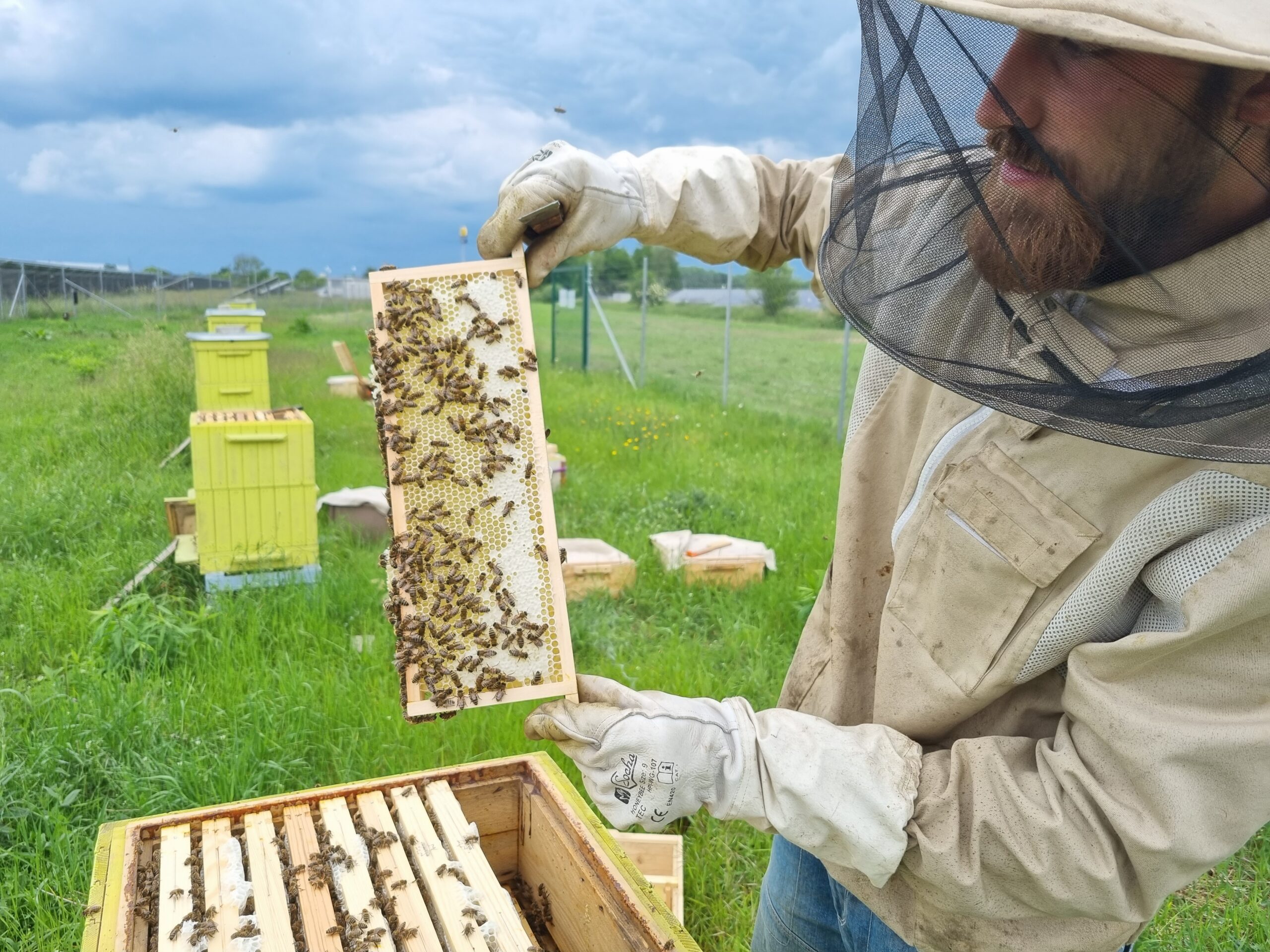
Supporting pollinating insects positively affects the environment and guarantees food security on earth. Bees and pollinating insects are extremely important to our environment. Over the past decades, pollinator populations have been declining rapidly due to habitat loss, agricultural intensification and the use of chemical pesticides, and climate change. The decline in pollinators is causing a decline in agricultural production and risks in reduced food supplies.
On our farms we not only run an apiary, but also support other insect species. The mounds made of stones and clay are an excellent place for the development of bumblebees and other ground insects. In addition, we will set up eight insect houses on the farms, which provide a place for other pollinating insects to thrive.
Beekeeping can also be an important source of livelihood for residents of non-urbanized areas. We support the development of local entrepreneurship, so our apiary is run by a beekeeper living in close proximity to the farms in Sulechow, who is developing his beekeeping business.
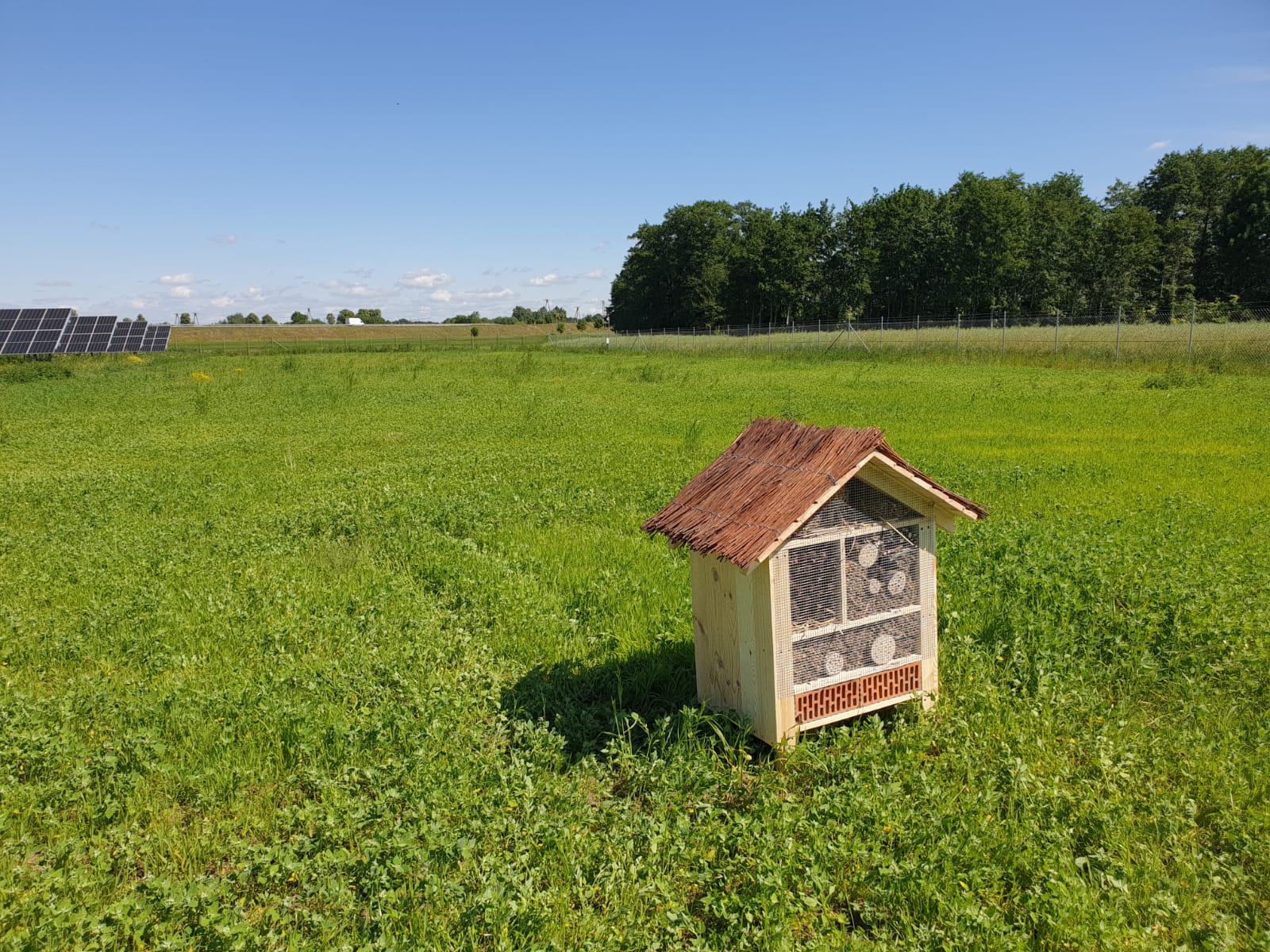
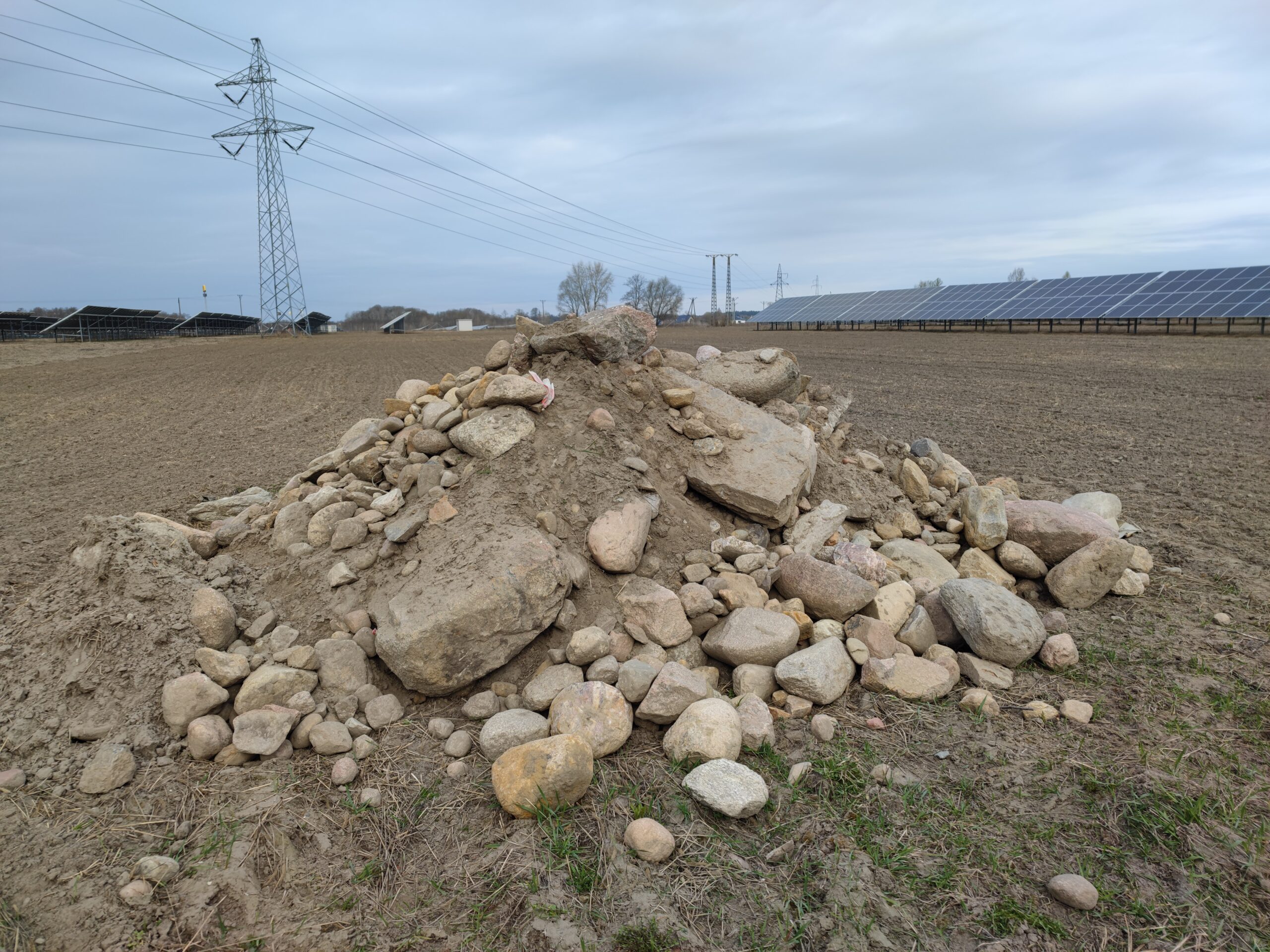
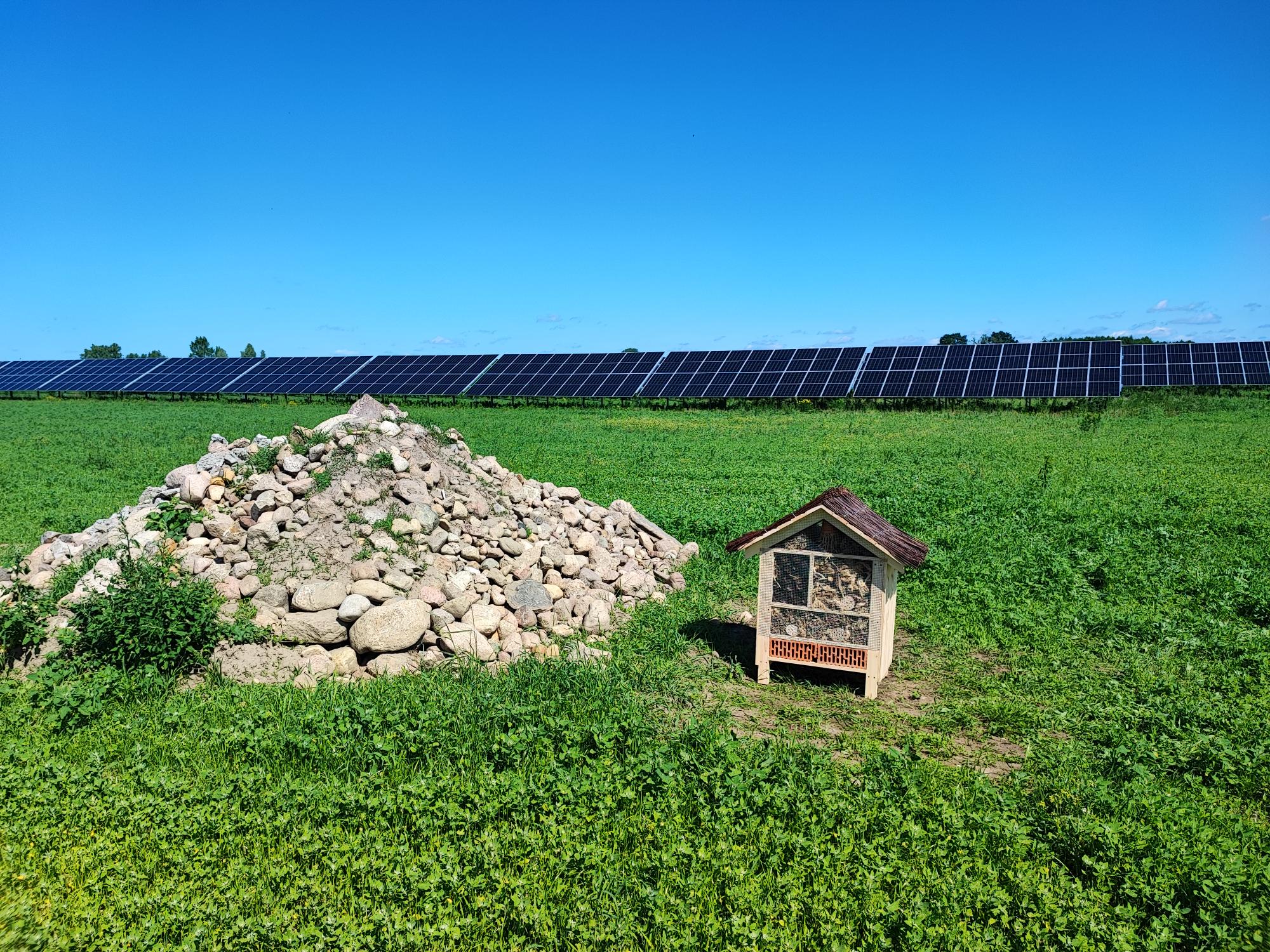
Biodiversity and concern for the future of our planet are firmly in the DNA of Polenergia, which invests in renewable energy sources. In order to effectively combat the climate crisis and the threat to the earth’s biodiversity, we actively cooperate with many institutions. We are a Partner of the #OnlyOneEarth Manifesto announced by the UN this year, and we have again become involved in the UNEP/GRID-Warsaw “Green Ribbon #ForPlanet” initiative. We are saying a resounding YES to climate education! ® and we subscribe to the appeal of the UN Global Compact Network Poland to introduce comprehensive and reliable climate change education in schools as soon as possible. We play green!® together with the Kulczyk Foundation and organize, among other things, educational classes on environmental protection and climate change for elementary school children across Poland. We take action and encourage local governments in places where we are developing our investments to become consciously involved in ecosystem restoration.
Let this spring honey become an incentive for you to pin the Green Ribbon #ForPlanet with us and join right now with all those to whom the well-being of nature and the environment and efforts to stop the degradation of ecosystems are particularly dear. We are convinced that together we can achieve our goals - especially the most ambitious ones, because the Earth is one for everyone and we must remember that!
Polenergia is starting cooperation with the University of Zielona Gora to conduct comprehensive biodiversity monitoring at the Sulechów Photovoltaic Farms complex. Scientists from the University of Zielona Gora will conduct research to determine the occurrence of fauna and plant habitats at the photovoltaic farms in Sulechów and assess the impact of the investment on biodiversity.
More information: https://esg.polenergia.pl/2022/wspolpraca-z-uniwersytetem-zielonogorskim-przy-monitoringu-przyrodniczym-na-farmach-fotowoltaicznych/
Szanowny użytkowniku, w zgodzie z założeniami RODO potrzebujemy Twojej zgody na przetwarzanie danych osobowych w tym zawartych w plikach cookies. Dowiedz się więcej.
The cookie settings on this website are set to "allow cookies" to give you the best browsing experience possible. If you continue to use this website without changing your cookie settings or you click "Accept" below then you are consenting to this.